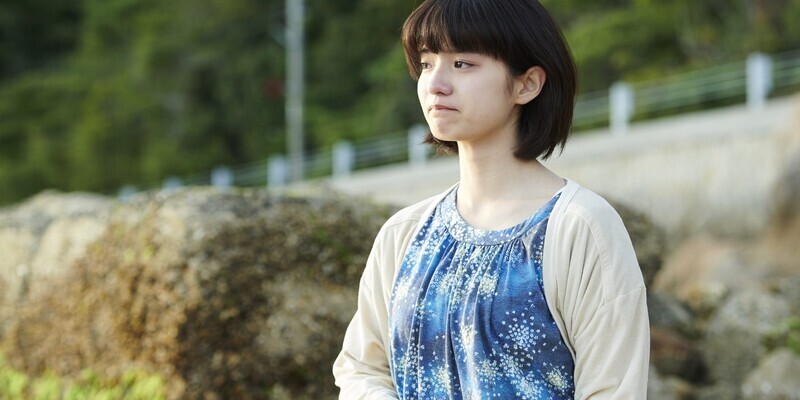
Review by
Eric Hillis
Directed by: Naomi Kawase
Starring: Hiromi Nagasaku, Arata Iura, Aju Makita, Reo Sato, Hiroko
Nakajima, Tetsu Hirahara, Ren Komai, Taketo Tanaka

Japanese cinema, and indeed East Asian cinema as a whole, has long
displayed an ability to tug at the heartstrings without indulging in the
sort of crass sentimentality often found in western melodrama. Filmmakers
from Ozu to Koreeda are aware that the most touching human truths are found
in the most low key moments. Naomi Kawase's 2015 film
Sweet Bean
is a perfect example of this, a tender drama that will have you reaching for
the Kleenex without ever resorting to any kind of emotional
grandstanding.

Kawase's latest, True Mothers, has some of the small moments of wisdom you expect from a top Japanese
filmmaker, but it's also infected by a western brand of schmaltz, as though
Kawase is auditioning for a future foray into English language filmmaking
and wants to prove she can be as direct as any emotionally uncouth American
director.
The film sprawls across two timelines, initially introducing us to the
present day life of married couple Satoko (Hiromi Nagasaku) and
Kiyokazu (Arata Iura). Their seemingly content middle class life is
disrupted by a phone call from a young girl claiming to be Hikari (Aju Makita), the birth mother of their adopted son Asoto (Reo Satō). The girl
demands that either her son is given back to her care or she will demand
money to maintain her silence about the adoption. Satoko and Kiyokazu call
her bluff and arrange for a meeting, but when they meet the girl, who
resembles a bedraggled street urchin, they doubt that this is the real
Hikari.

Thus begins an extended flashback detailing Hikari's pregnancy at age 14,
when she is shuffled off to 'Baby Baton', an adoption agency that takes in
young pregnant girls who don't want to become mothers and passes on their
progeny to willing adoptees. After handing over the infant Asoto, Hikari
struggles to adjust back to her home life, eventually running away and
returning to Baby Baton where she works until it is closed down and she
finds herself living alone in the big city, contending with various
hardships.
True Mothers is the very definition of a "weepie", or what
was once known as a "woman's picture." It's a melodrama that works best when
it's being mellow, not so much when it's overly dramatic. In newcomer
Makita, Kawase has unearthed an actress of remarkable talent, and her
performance anchors True Mothers, keeping us invested even when it's rambling off into unnecessary
subplots. And boy are there a few of those. At 140 minutes,
True Mothers is in dire need of some pruning. Do we really
need the 30 minutes of flashback devoted to Satoko and Kiyokazu facing
their inability to have a child of their own and stumbling across Baby Baton
(which, in a particularly crude piece of storytelling, they find while
flicking through TV channels)? Do we really need the appearance of a pair of
scary Yakuza who demand money from Hikari? Do we really need, on top of all
the other misery, an emotionally manipulative monologue from a side
character about his girlfriend's suicide?

Were True Mothers less concerned with being an epic melodrama
and more invested in the story of Hikari, it might be one of the best
Japanese dramas of recent years. There are moments of humanity between
Hikari and various characters that will give you a warm glow, and equally
moments of horror that will have you wishing you could reach into the screen
and give her a reassuring hug. Kawase's filmmaking is powerful in bursts,
but those bursts are mired in a sprawling film that often feels like it's
searching for its narrative centre. By the end you may have gone through a
hanky or two, yet you'll feel a little manipulated, a little exasperated,
but perhaps a little enlightened regarding the women often left behind in
the adoption process.


